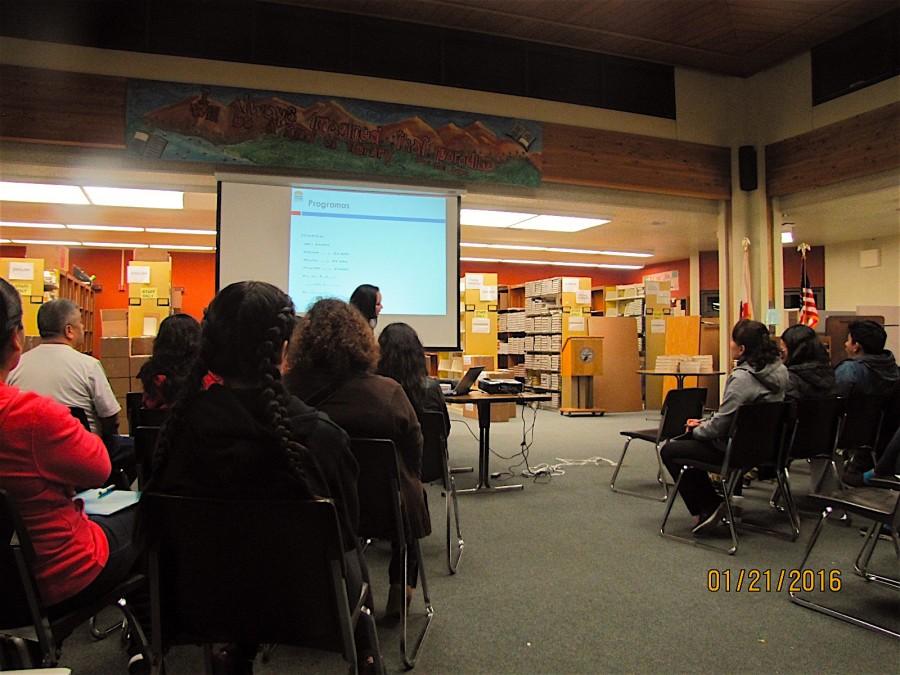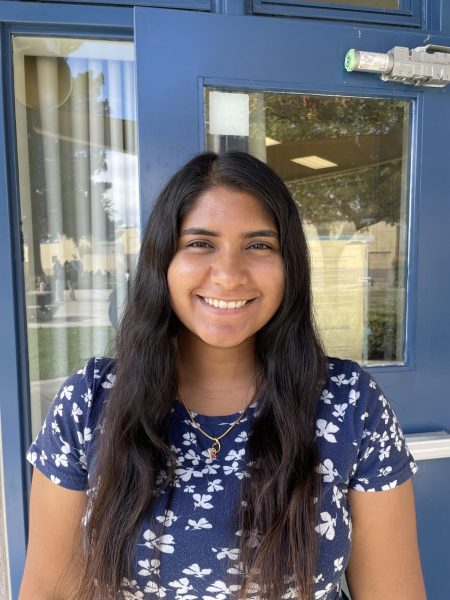Financial Aid Night: Bilingual Presentations Help Students Navigate the Path to College
Financial Aid Night took place on Thursday, January 21st, at 6 p.m. in the Small Gym and also in the Media Center for Spanish speakers. Joe McDevitt and Elizabeth Ochoa presented information about FAFSA in English, while Lucia Moreno presented in Spanish. Despite the difference in language, the central ideas and tips were identical.
They spoke about the
- Education System
- Financial Aid types
- Calculating Eligibility
- FAFSA Application Process
First of all, all you need to understand is that education will always be one of the main reasons for why the government will give you financial help. Especially for students going from high school to college. Aid is provided regardless of the type of education you plan to receive. As we may know, community college may be public but there is no doubt we must pay. If the student qualifies for FAFSA then their community college cost per unit may fall from $250 to $45, and it will also apply to CSU’s, UC’s, and privates.
They money, however, does not only come from the federal government. Undocumented students are unable to receive federal aid, but they do receive help from the state government, colleges and/or universities, and private companies. They recommended that students receive as much “necessary” help as possible, which includes grants and scholarships. “Unnecessary” help such as loans and work study, which is when the student works on campus to pay off their education, are something you may consider but necessary help is always better.
Federal
- Pell Grant – $5,775
- FSEOG- up to $4,000
- TEACH- up to $3,500
- CHAFEE- up to $5,000
State
- Cal Grant (A,B, or C)
- CC-$1,656 Universities-$12,192
- UC, CSU, Independent scholarships
- CSU-$1,094 UC-$2,640
- EOP(Educational Opportunity Program)-$600
They also warned about loans that come from most banks, because they will look at credit. They recommend that if you do consider loans that they come from the college or university you attend.
Types of Loans
- Subsidized loans- Require no interest as long as students keeps attending
- Non-Subsidized loans- Gives you an interest of 4.66%
- LOAN Plus- 7.2% interest for parent loan
After the student graduates the loan is expected to start being paid off after 6 month. They do that because the want to give the student enough time to get a job.
Something to always remember about scholarships and grants is that your GPA does matter! For FAFSA it do not directly say what GPA they want, however the higher the better.
FAFSA requirements
- Valid Social Security number
- U.S. citizen
- Male students ranging from ages 18-25 are required to register for Military Service
- Have a high school diploma, GED, or equivalent
- Create a professional email
- You must create a FAFSA ID
If you don’t have a social security and/or you are undocumented:
Cal Dream Act-Requirements
- No Social Security number
- DACA Social Security number
- ITIN number (if you do taxes)
- Graduation from any school in CA
- Qualify as AB540/AB2000
- Male students ranging from ages 18-25 are required to register for Military Service
- Create a professional email
- Create a username
The AB540 is used as proof that you are not documented and that you have graduated from high school. Without having been graduated from high school, you will receive NO help whatsoever.
If you need help or have any questions while filling out FAFSA there will be a workshop available on Wednesday, February 10, 2016 from 3:00pm-7:00pm.
Remember:
- to bring 2014 or 2015 W-2 tax forms
- to bring the filled out paper given inside the folder at the meeting
- to create your FSA ID before you come
Need Help Finding private scholarships?
Visit these Websites!

Jacqueline Moncada is a senior at Lincoln High School, she was born in San Jose, CA, although she is part Mexican and Lebanese. She enjoys playing all...











